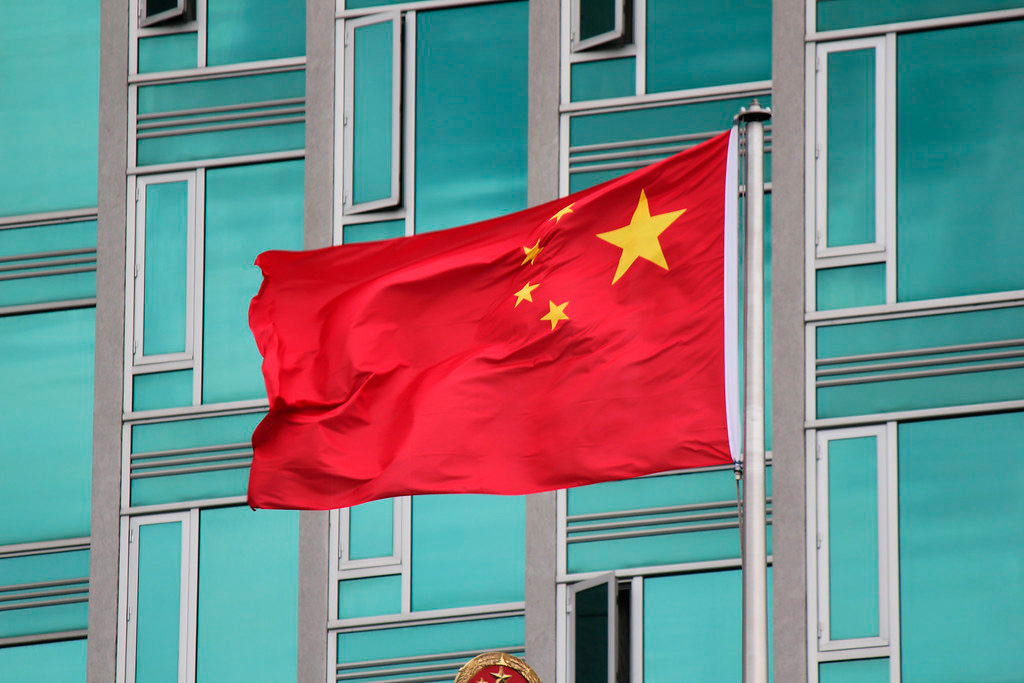Chinese companies which have been in the mining activity in Indonesia are majorly responsible for deforestation. Three Chinese companies which are involved in mining activity of crucial nickel, have been accused of deforestation. Nickel is needed for electric vehicle batteries.
According to US based NGO,Climate Rights International (CRI),mining activity at a nickel industrial park linked to mainly Chinese companies, has been a major contributor to mass deforestation in Indonesia. CRI reported that estimated carbon dioxide emissions from deforestation were “roughly equivalent to the annual emissions of 450,000 cars.”
Chinese companies have made massive investments in Indonesia’s nickel industry in the last few years. CRIhas documented every activity at the Indonesia Weda Bay Industrial Park (IWIP) in which it pointed out ecological damage in the nickel industry by the Chinese companies. the Indonesia Weda Bay Industrial Park (IWIP) which is one of the country’s largest nickel processing hubs, has investors who included China’s Tsingshan Holding Group and France’s Eramet.
The operator of the park, on Halmahera island in the Maluku region, is a joint venture between China’s Zhejiang Huayou Cobalt (603799.SS), opens new tab, Zhenshi Holding Group and Tsingshan.
CRI said companies, which had permits, have cut down more than 5,300 hectares of tropical forest within the park’s concession since 2018, citing geospatial analysis of satellite imagery conducted by the group and researchers at the University of California, Berkeley, in the United States.That is roughly the size of over 6,000 soccer pitches.
The CRI’s Human and Climate Costs of Indonesia’s Nickel Industry’, highlighting that Indonesia’s nickel industry violated human rights and causes severe environmental damage.
Environmental experts have raised concerns stating that nickel industry could worsen deforestation in Indonesia, a resource-rich country that is also home to massive rainforests.After years of rampant deforestation, Indonesia has had success in slowing the rate at which forests are cleared for plantations and other industrial activity.From 2020 through 2022, Indonesia reduced its average primary forest loss by 64% compared with 2015-2017, showed, opens new tab data from research group World Resources Institute.
CRI also estimated that carbon dioxide emissions from deforestation were “roughly equivalent to the annual emissions of 450,000 cars.”
Besides geopolitical threat to the West , Chinese companies have started dominating nickel mining in Indonesia becauseNickel can help the world achieve net zero emissions. Nickle is Indonesia’s first priority commodity to become a clean-energy superpower.
China’s investment in Indonesia’s nickel industry
China had invested three billion US dollars in Indonesia in the Quarter four of 2022. The investment value of that period was the highest compared to other countries valued at 3 billion US dollars such as Singapore with 2.7 billion US dollars, Hong Kong with 1.6 billion US dollars, Malaysia with 1.1 billion US dollars, and the United States with 0.9 billion US dollars.
According to the Indonesiabusinesspost.com, Shandong Nanshan, a major Chinese company, was expanding its aluminium smelting complex worth 6 billion US dollarswhich is the largest foreign investment in Indonesia. The company also invited other Chinese companies to invest in Indonesia.
In the IMIP area, China has reportedly invested 1.63 billion US dollars for the development of area. With Tsingshan Group, Delong Group, and PT Indonesia Morowali Industrial Park signed the cooperation, collaborating to build a carbon steel factory with a capacity of 3.5 million tons with an investment of 980 million US dollars.
In 2021, China’s leading nickel trader, Lygend Resources & Technology, built Indonesia’s first hydrometallurgical nickel project. Chinese mining company Zhejiang Huayou Cobalt and metal recycling service provider GEM Co. have since launched similar projects. About 3,000 miles south of Beijing, Chinese mining companies have set up operations in the heart of the world’s largest known nickel reserves. On the Indonesian islands of Sulawesi and Halmahera, they’ve built refineries, smelters, a new metallurgy school—even a nickel museum.
Together, they’ve plowed 3.2 billion US dollars into the remote islands this year alone, bringing the total to 14.2 billion US dollars in investment over the past 10 years—enough to secure their nickel supply into the next decade. The metal is primarily used in the production of stainless steel, but it’s also a critical component in electric vehicles. It makes up 90% of the cathode, the most expensive part of a high-performance battery, and there’s concern that demand will outstrip supply in the not-so-distant future.
While Chinese companies may have given huge money to the Indonesian government but several questions have been raised over prevailing working conditions in such companies .Three Chinese workers at an Indonesian nickel industrial complex on Sulawesi island approached Indonesia’s human rights commission over poor workplace conditions early last year. The complainants at PT Indonesia Morowali Industrial Park (IMIP) in Central Sulawesi province said they “endured a lot of physical, psychological, financial damages to their reputation as human beings”, according to a statement from the law firm.The park, which counts China’s nickel company Tsingshan Holding Group as a prominent partner, employs about 100,000 people and spans 2,000 hectares with an airport, mineral processing plants, a port and a hotel for high-level visitors.
Indonesia’s Human Rights Commission conducted a probe into working conditions in the nickel refining industry following reports of “lack of labour protection” for both local and foreign workers who were mainly from China.
President Joko Widodo told Reuters last year Indonesia would increase scrutiny of miners and order companies to manage nurseries and reforest depleted mines.

